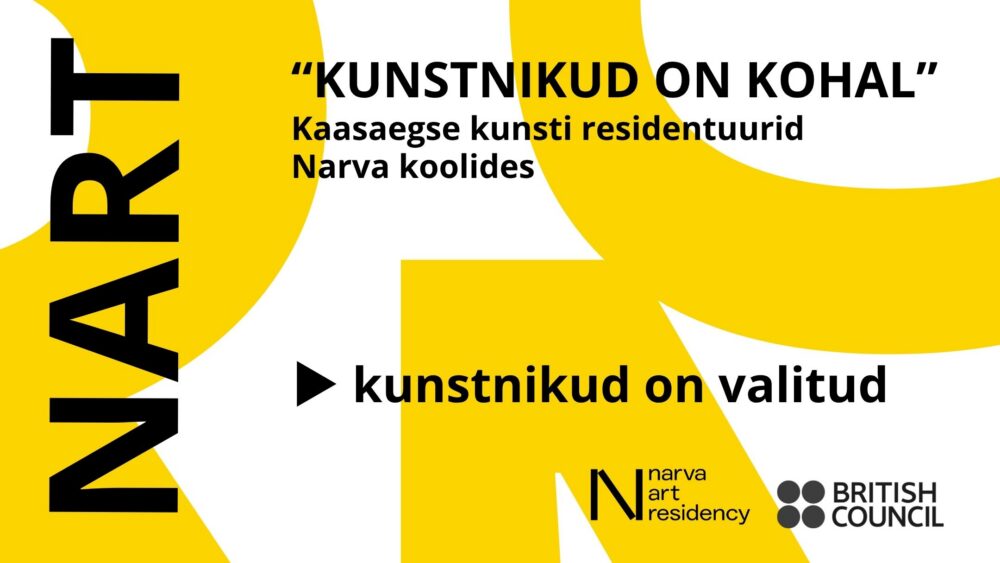The aim of the school-based art residencies “Artists Are Present” program is to increase the accessibility and presence of contemporary art in Narva. The project took place for the first time in the spring of 2025, when three artists were selected through a competition. Their visits to schools were equipped with workshops, discussions, games and crafts. The activities were held in Estonian, which was especially important considering the ongoing education reform.
This time, the opportunity for a creative residency opened up for six artists who, with the support of NART, will conduct creative meetings in Narva schools in late October and early November. The project’s concluding event for artists and teachers will take place at NART on November 29.
The winners of the competition were selected by a four-member jury, which included Olesja Katšanovskaja-Münd, curator of cultural and educational programs at the Tallinn Art Hall, Anneli Porri, lecturer-junior researcher, Head of Art Education Department at the Estonian Academy of Arts, Eva-Erle Lilleaed, head of the Kumu Art Museum Education Center, and Johanna Rannula, director of the Narva Art Residency.
According to the jury, the level of applicants was high and the courage of Estonian artists to offer schools a contemporary art experience through a diverse approach – from taking shape to sound and movement – is inspiring.
The week-long residency and scholarship were awarded to Allan Kukk, Loora Kaubi, Silver Tsäko, Henri Hütt, Annika Sellik, and Indrek Haas.
The proposal to participate in the project and host the artists was accepted by Narva Pähklimäe School, Narva 6th School, Narva Kesklinna School, Narva Language Lyceum, and Narva Paju School.
Before the residency begins, meetings will be held with all schools and also with a language mentor, who will support the artists in conducting meetings in schools where the transition to Estonian-language teaching is taking place.
The project is supported by the British Council.
